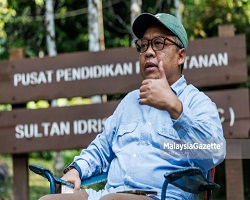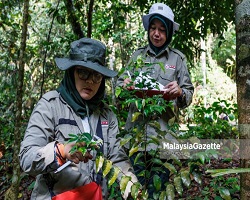Sustainable development sees entrepreneurship as a channel to change. This is because it can develop sustainable products and processes through innovation in meeting social and environmental concerns. While sustainable entrepreneurship can make use of economic opportunities linked to market failures, social entrepreneurship is driven by slightly different motivations, as they aim to promote inclusivity to meet social needs. Both aim to develop sustainable businesses.
While sustainable development aims to restore and preserve the natural environment, social entrepreneurship creates a “blended value” of social, economic and environmental values that focuses on community and social development. Intrinsically, social entrepreneurship and sustainable entrepreneurship not only share common goals but are compatible.
The Global Entrepreneurship Monitor describes social entrepreneurial activities as any kind of activity, organization or initiative that has a particular social, environmental or community objective. It can run in all economic and social sectors, such as economic development, environmental conservation, social welfare, human development, arts and cultural preservation, health, agriculture, education, children and youth, democratization and governance, elderly services; with program areas promoting economic opportunities, community, and rural development, market development, access in under-served markets, employment development, microenterprise development, institutional and organizational development. This strength will enable social entrepreneurship to function in various areas following social needs.
While operators of conventional entrepreneurship may face more challenges in a faster and more viable environment, social entrepreneurship may reasonable improved in achieving sustainability, due to positive factors and their characteristics.
Sustainability
When revenue is not the main objective, price competition would be less focused, allowing long-term competitive strategies to be active. With more information available, more accurate demand and supply could be anticipated to reduce waste and endorse efficient use of resources. As such, sustainability is easier to achieve in the 4th Industrial revolution environment, as the sharing economy will promote business models that influence on platforms that enable the sharing of resources. It will help overcome social entrepreneurship’s key challenge — capitalization, with a lower operational cost.
Adaptivity
With a hybrid nature, social entrepreneurship is more adaptive, as it could be organized and designed within existing or separate entities; in both for-profits and non-profits — unlike conventional entrepreneurship. As such, social entrepreneurship could be developed into a sustainable program mechanism for non-profits, or be adopted by existing established for-profits to grow or sustain its social development activities — operating in different organizational settings — large and small.
Innovating
As social entrepreneurship focuses on generating ideas and solutions that create social values, it employs social innovation to ensure that the organization operates in an open, collaborative, inclusive and agile nature, while conforming to acknowledged commercial and ethical standards.
Inclusivity
The stakeholder or communal ownership nature of social entrepreneurship ensures its accountability towards its social supporters. All profits are either reinvested to sustain social impact or re-distributed to benefit stakeholders and society — reducing misallocation of capital and resources, potentially reducing wealth inequality as ownership and profits will be distributed.
The sharing economy will add lower barriers to entry, while the networks will help connect stakeholders and beneficiaries more proficiently — enabling better feedback to improve social response. It will also enable better participation, monitoring and optimization of assets and resources through crowdsourcing and sharing.
Finally, as a business entity, a social enterprise contributes towards GDP growth, by creating employment and product and services that aim to promote positive externalities, empowering societies collectively. Through its social-business integration, it can operate in most economic sectors; ensuring that both the population-at-large and those under-served will be considered for economic opportunities. Ethical and social issues that may occur in 4iR, could, therefore, be resolved — benefiting from the ownership and economic activities generated by social entrepreneurship.
Conclusion
In conclusion, flexibility and perseverance in political and societal will, will be required to break the cycle of the direct economy, as the move to create a circular economy requires large-scale change over administration, social, political, information, innovation, lawful, budgetary, labor and financial matters. As such, to guarantee that the unused time is of success and not of a social and political end of the world, basic consideration and vitality are required to construct a multi-stakeholder collaboration over the scholarly world, legislative issues, national and industry boundaries. Social business enterprise seem play a part to proclaim a common story of positive societal values, to guarantee that long run will be human-centered, engaging instead of divisive and dehumanizing.
References
Bansal, S., Garg, I., & Sharma, G. D. (2019). Social entrepreneurship as a path for social change and driver of sustainable development: A systematic review and research agenda. Sustainability, 11(4), 1091.
Stratan, D. (2017). Success factors of sustainable social enterprises through circular economy perspective. Visegrad Journal on Bioeconomy and Sustainable Development, 6(1), 17–23.
Xu, M., David, J. M., & Kim, S. H. (2018). The fourth industrial revolution: opportunities and challenges. International Journal of Financial Research, 9(2), 90–95.
Date of Input: 29/09/2022 | Updated: 29/09/2022 | masridien
MEDIA SHARING




























